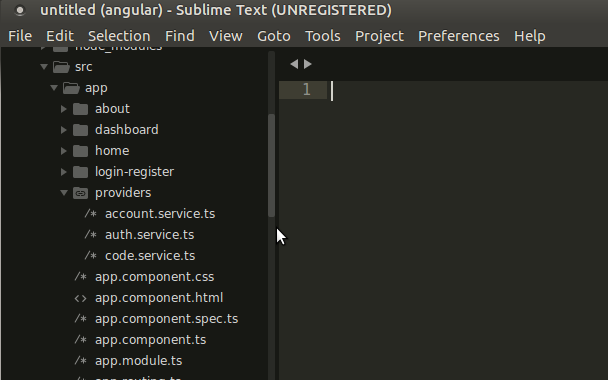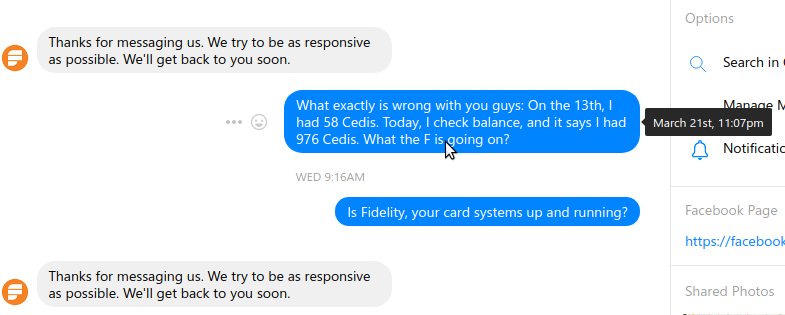Learn by Doing – A Superior Way of Learning, Here’s Why
Preamble: I did 10 subjects for three years in Junior High School (what others refer to as Grade 7 to 9), namely, English, Mathematics, Integrated Science (yeesh), Social Studies, Akan (Twi), French (yes, French), Pre-Technical Skills, Religious and Moral Education (RME), Agriculture and Pre-vocation Skills.
If you’ve not heard of the Pareto Principle, also known as the 80/20 Principle, lemme bring you up to speed using my subjects list above in an example.
Of the 10 subjects I studied, I have used 20% of them far more, about 80% of the time in life! Let’s break things down. English (communication level, not Ph.D. speaking skills) and Mathematics (simple Algebra), I’ve used them even before I got to Junior High School and still heavily rely on the basic understanding I gained from there till date.
Akan is my mother tongue. Integrated Science? Only the Physics part made sense and still fascinates me to this day. Chemistry and Biology part, what did you say the belly of a frog is called, or how heavy is 1 mole? Duh!
Chemistry and Biology part, what did you say the belly part of a frog is called, or how heavy is 1 mole? Duh!
French, Pre-technical Skills, Agriculture and Pre-vocation skills, NEVER needed them after high school for anything useful in my life. I don’t understand anything in French, except ‘Comment ca va’ – did I even write that right?
Enough, the point is, when I take the subjects I’ve benefited from to this day, and compare to the one’s that haven’t impacted my life in any way whatsoever, I can get rough percentages of 20% useful to 80% not useful, although the 20% has impacted about 80% of my life!
Roughly!
So, I quote, The Pareto Principle:
“The Pareto principle (also known as the 80/20 rule, the law of the vital few, or the principle of factor sparsity) states that, for many events, roughly 80% of the effects come from 20% of the causes.”
Let that principle soak in for a minute. Don’t read on. Wait for the minute, look into the sky, and run your imagination and thinking skills wild. 80/20 rule; roughly “80% of the effects come from 20% of the causes”.
Is that true?
Using my school subjects as an example, 20% of everything I studied impacted 80% of my life (and career for that matter). Still don’t get it? Let’s take something simple!
Take your keyboard as an example. Let’s assume you’re a typist, a secretary. At the end of the day, you would have used 20% of all the keys on the board, some 80% times more than the rest.
If you wrote a letter, you probably didn’t punch many numbers. You made extensive use of the Shift key, Space bar, more of the vowels than consonant keys. You likely never pressed the Escape key, nor the Tilde key. Why would you print screen when typing? The arrow keys? Pipe?
Do you get the principle?
Hold on! This principle might not apply to every scenario there is in this world, and from my little observation, the smaller the subject in context is, the less applicable this principle can be.
For example, in a cylinder filled with gas, are only 20% of the molecules exerting 80% of the force? In a human blood, do only 20% of the red blood cells do 80% of the carrying of oxygen job?
What’s the Problem?
So you ask, ‘what has the 80/20 rule has to do with Learn by Doing, and all this gibberish nonsense comparisons and examples?’
Here’s the problem. In real life, in software development, in studies, whatever you might think of, we mostly use 20% of whatever we have 80% of the time. So, when studying, why learn the 100% upfront, when you’re only going to need and MUST know only 20% to get up and running?
You don’t gain experience by learning 100% of whatever material you have. Rather, since “Experience is the knowledge or mastery of an event or subject gained through involvement in or exposure to it”, by getting your hands dirty is one solid way of becoming better at whatever field you’re in.
For each of the subjects I listed earlier, I had to study 100% of the study materials for each subject. As crazy as it may sound, the exams I wrote on each of them covered only roughly 20% of the entire course material!
Therefore, I spent 100% of my effort, learning 100% of the material, only to use 20% of that effort in the examination. What if, I could spend 100% of my effort, studying only the 20% of what showed up in the exams? Would it have increased my chances of getting better grades 80% more?
Learn ….
I have self-taught myself a lot of things over the years. My interest in conventional education system went down the sink earlier on in life, so I’ve always been on the edge of constantly learning, studying what matters, and piling more on as and when needed. And before I would pile on the 30% percent, I’m comfortable with the 20% earlier on, which means the extra 10% becomes a smooth ride.
However, should I pile the 100% upfront, many wouldn’t make sense, and how they apply won’t come up readily useful to me, thus making the studies a chore, rather than a useful experience. And if what I study don’t make any practical sense or readily feel useful, how do I expect it to stick?
We go through a lot each day. In bigger cities, we walk by hundreds if not thousands of people daily. We see different faces.
But of all the people you come across, should you see a friend, relative or acquaintance, you do recognize instantly. The point isn’t about the remembering, but when you get home, that meetup will stand out of the hundreds of people you passed by.
Why? Because the relative or friend made ‘practical sense’ to you. You readily could ‘relate’ to the importance of the person. Not to say the other people you waited in line with to cross the street aren’t important, but at the point in time, their significance meant little to nothing to you.
Thus, since you couldn’t make any link between who they are, and why it matters to you, it quickly slips through the brain at the end of the day.
Later on, you meet this lady at party and you’re like, ‘Oh, I think I know you somewhere’. But you don’t remember. After quickly learning the background of this lady, she makes sense to you. You mind registers the significance of who she is, and it actually sticks, although you might have come across her on the street earlier but you had no memories build up.
Likewise, being able to make practical associations of what we study with other subject matters helps us understand.
By condensing the most needed parts up front, and realizing the use, benefits and practically means you get a solid understanding, to begin with.
Lemme use a typical example to explain the situation.
Somewhere this year, I spent 10 days learning the Laravel Framework to build a Laravel Survey App. Did I learn everything in Laravel? No. Did I understand everything in Laravel? A big no!
Am I a Laravel guru? Far from it! But I got a working Laravel App out in no time. And yes, before the App, I had not built anything using PHP or any PHP-Framework ever! Everything was fresh waters for me.
You might be thinking, ‘Yeah, that’s because you’re a smart guy.’ You’re free to think what you want, but that’s far from the truth. I believe in the 80/20 Rule, and when I study with the principle in mind, things stick faster, and the experience is fun.
Django has one of the most extensive, comprehensive, detailed documentations of any Framework ever out there – at least that I’ve seen. Till date, I’ve read/studied the Django Documentation (precisely the 1.7, 1.8 docs) some 4 times, cover to cover!
What did that do to me? I pretty much know what the entire framework is capable of, what features are available, a rough idea of what to do and when, and sometimes how. But, in reality, I’m yet to build anything that uses close to 15% percent of the entire strength of the framework. Why? Because, the typical web application out there, for the most part, needs just about 20% of what the framework offers.
The point is, there’s so much we can learn (100%), but in reality not much is needed for the ins and outs (some 20% is all one might need) of what we do on a daily basis or the applications we build.
… By Doing …
When you learn by doing, it is easy to end up only learning the 20% you need to hit the ground up and running. Why? Because when you start doing, you come across repetitive patterns, you get to see what needs more attention, where the hit areas are, what you need to focus on, where to spend more energy.
As I was building the Laravel Survey App, I quickly forced myself to understand Facades. Why? A better understanding of Facades was key to understanding why certain behaviors in Laravel do exist, and makes achieving certain tasks faster, easier and fun!
After even a slight understanding of Facades, I began enjoying building with Laravel.
Coming from Django, where there ain’t any command line generators (why does Django still not have that?), I at first thought of the php make commands as lazy and newbie-ish! However, my perspective on how it works changed.
You see, again back to the 80/20 rule, we repeat a few things over and over again in the line of work of a project. That 20% commands/features we use issue/use 80% of the time, what if we could bring those commands/features to the fore, and make them easily accessible?
That might just be about 20% of all the commands there are in php make but that small percentage might end up saving us 80% of our time.
I got used to the command line, and it was blissful! Do I know all the commands of php make? Nope. Off my head, I still remember something from php make to Auth, and a few others.
I could have picked up a 2 million paged Laravel book, read/study end to end, then jump into my code editor to start building something based on what I read. Well, reading cover to cover should have given me an in-depth understanding of the possibilities the tool or framework offers me.
But the question is, for a typical application, would I need all the possibilities? Learning by Doing – building the Laravel Survey App – meant I approach Laravel from the practical perspective than the concepts and theory
It can be easy falling for the trap of following the in-book exercises or project. What I’ve come to realize is, some, if not most of these examples, projects or exercises are ‘rigged’ in a way to fit in line with the educational material being provided.
Sometimes, the exercises/projects or examples are designed to throw in more than necessary of the ‘possibilities’, in an attempt to show readers what is possible. But in reality, that might not be useful.
On the other hand, some documentations might throw out there an example, which works on its own, but adapting it for the real, practical application starts getting weird!
There’s a huge difference between ‘Knowing’ something, and ‘Needing’ it. In our daily line of work, we try to focus on what we really need, and only add more ‘knowledge’ as and when needed.
Till this day, when I look back, the time I spent ‘knowing and learning and studying’ my Agric, Pre-Voc, Pre-Tech, I wonder, could I have used it to learn something that I would have ‘Needed’ and used till this day?
There’s the popular argument of, ‘We let you study these because at that age, you don’t really know what you’ll do in the future.’
Fair point! Then, why don’t I study 250 subjects at the age of 10 through 13, because, yes, you guessed right, I don’t really know what I’ll do in the future. So lemme do basic forms of Astrophysics, Quantum Mechanics, Engines, Surgery, Acturial Science, Machine learning and others.
In that way, by the time I grow, I’ll be ready to pick one, and that broad understanding will make me better fit wherever I end up.
Although not the subject of the topic, the principle of ‘Less is More’ ties in well here. Concentrating on less in many, most cases, results in more results, more effective, more efficient, more common sense adults.
The educational system of Finland is a living example of the principle of ‘Less is More’.
In our educational system, we spend tens of thousands of hours studying so many things (more), and end up using extremely less in real life.
The 80/20 Rule, we’ve decided to turn it up-side-down. We focus tirelessly on more than 80%, which has only about 20% of an effect or impact on us, in our lives or on the job market.
Yes, a course called Common Sense. I believe if a Common Sense class existed, America might not be in the hands she is in now with DTrump manning the nation!
Pre-Tech could fit within Mathematics. Agriculture, within Science. Pre-Vocation skills, well within Science. The the Social Studies will all fall under the Common Sense.
I spent days, weeks learning Pre-vocation skills, which ours focused on preparing food and cooking. As if that would make me a cook. Duh!
Thus, because I don’t know what I would become in just 6 to 8 years time doesn’t mean I should carry the entire weight of academia on my shoulders.
As a wise meme once suggested: ‘If teachers teach one subject, why are students required to learn 10 (or 8 or even 4)?’
Silly analogy, but the point is, the real world requires and needs less (but effective, efficient-ness of us), not more. If we find a way to focus on the most important things, we’re sure to tap into far reaches of each and everyone’s potential. [Phillipians 1:10a, for the religious minded ones]
The model of learning almost everything, then narrowing down as one grows or raises in the conventional educational ladder is ineffective, and although might have worked some time back, I doubt it should survive today.
Heck, Prince EA took Schooling to Court!
https://www.youtube.com/watch?v=dqTTojTija8
If we will implement the 80/20 Rule in education, then students will focus more on what would make then great thinkers, and smart, then as they grow, more percentage is allocated as their experience improves and understanding widens.
Then when their interest is anchored, much deeper depths could be reached, still keeping in mind the 80/20 rule!
… Is Superior
You obviously would feel comfortable in the hands of a doctor who’ve successfully completed in-person, at the theater, hands-on, 200 heart operations out of, say 220 cases, more than another a doctor who’s studied 220 cases of the previous doctor and know every single line of the report of the operations and what he did or did not.
Would you care about more about what someone knows at such critical time, or on the primary fact that the person actually can, and does what you want?
When companies complain about the education system producing none-job-market-ready students, they’re in effect saying, ‘Please, cut the bad, and teach them what we actually need them to do’.
When students, who have hands-on experience with proof of a firm understanding, solid background in the 20% of a trade, trust me, 80% of them are bound to go through interviews and grab a job.
Because they’ve mastered the 20% most used/required in whatever field they’re in, how good their work is becomes clearly seen, and it quickly and readily shines to be obvious how great they can be as the extra percentages are added!
In recent years, the process of ‘Learn by Doing’ trend is growing, and organizations such as Udacity is pioneering in the field of helping students focus on building projects, that use the primary 20% of the skills needed, laying the right foundation for building greater and better projects in the future!
Conclusion
Learn by doing is a superior way of building your career, and your skills set will surely make you superior in whatever field you find yourself in, because you spend 100% effort in learning the 20% most required to deliver 80% of output, then you build on that initial percentage as you gain more experience!


